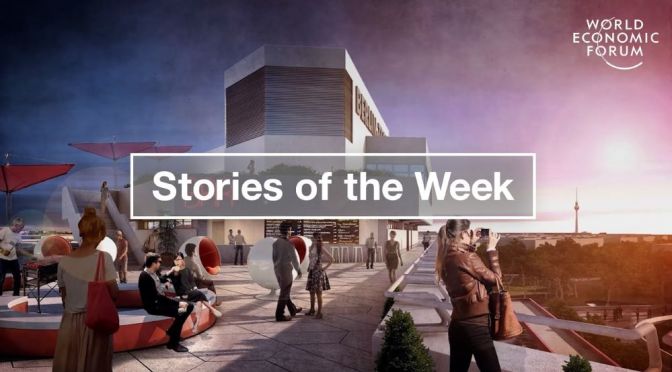World Economic Forum (April 15, 2023) – This week’s top stories of the week include:
0:15 China build’s the world’s largest container ship – Mediterranean Tessa is nearly 400 metres long. Her deck area is the size of 4 football pitches. She can carry up to 240,000 tonnes of cargo or more than 24,000 standard containers. The ship is fitted with an air lubrication system. It blows tiny bubbles along the hull to reduce its resistance in the water.This reduces the ship’s CO2 emissions by up to 4% saving around 6,000 tonnes of CO2 a year.
1:36 The first cellphone call was made 50 years ago – On 3 April 1973, Motorola engineer Martin Cooper stood on a Manhattan street and called the landline of a rival who was racing to develop the cellphone, too. This was the world’s first mobile phone call. “I’m calling you on a cellphone,” Cooper said. ‘‘A personal, handheld, portable cellphone” the race was over. Cooper’s prototype became the first commercially available mobile phone. Motorola released the DynaTAC 8000x a decade later, in 1984. It was about the size of a shoebox and cost $11,500 in today’s money. Since then, mobile technology has transformed our lives. Watch to learn more about the first mobile phone call in the world.
3:40 South Korea to pay its citizens to have children – South Korea has the world’s lowest fertility rate. The average South Korean woman will have 0.78 babies in her lifetime. While the average fertility rate in OECD countries is 1.59. South Korea’s population is shrinking as a result. More people die each year than are born. Left unchecked, the country’s working-age population will almost halve by 2070. Globally, the fertility rate is declining it stands at 2.3 today. In 2000 it was 2.7. The UN predicts the global population will peak at 10.4 billion by 2080, but a recent study suggests the peak could be much lower and could arrive much sooner.
5:01 Why sleeper trains are being revived across Europe – The EU has provisionally agreed to call 2021 the European Year of Rail. It says boosting rail travel could help the bloc reach carbon neutrality by 2050.
_____________________________________________
The World Economic Forum is the International Organization for Public-Private Cooperation. The Forum engages the foremost political, business, cultural and other leaders of society to shape global, regional and industry agendas. We believe that progress happens by bringing together people from all walks of life who have the drive and the influence to make positive change.

